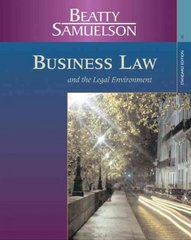Question
Discussion board: Money The Financial Crisis:Who is to Blame? That's Where the Money Is I can't remember how many times I have heard this story
Discussion board: Money
The Financial Crisis:Who is to Blame?
"That's Where the Money Is"
I can't remember how many times I have heard this story used at the beginning of a banking/finance conference that I was attending, but it does provide a good introduction.In the 1930s, Willie Sutton became afairly notoriousbank robber.The press added to his reputation with the suggestion that he was the "Robin Hood" of the Great Depression as he (supposedly) would share the "take" with the poor.Apparently, Willie didn't share much of anything, especially the loot.
After being apprehended and convicted, he spent most of his adult life in jail.Near the end of his life a journalist decided to write a book about his exploitsand spent several months interviewing Sutton.Those interviews finally came down to one last question..."Willie, why did you rob all of those banks?"
His responsewas simple and to the point..."that's where the money is."Willie later denied that statement and said the author made up because it sounded better than his answer which just had to do with the excitement that he felt "sticking up a bank."However accurate it was, the phrase stuck.
Every time we get into a financial crisis in this country, it almost always involves our commercial banking system in some way.It is true-that's where the money is.We have sufferedthrough many difficult financial times.One of the most difficult was in the late 1980s when our financial system almost collapsed because of speculative banking practices.It cost the average family in this country $20,000 in taxes to bail out the Savings and Loans and banks.Then, as now, there were different ideas on the causes but much of it had to do with our deregulation and reduced oversight of our financial service institutions.Alsothen, as now, a few people made a great deal of money and then left government (and the public) "holding the bag" as things began to unwind (sorry, I couldn't resist some opinion).We are still realizing the full magnitude of the current situation but it accurate to call it a crisis.
I think that everyone agrees that we have a significant problem and that our financial system was very near a complete collapse in late 2008.I am going to ask you to review the information that I am including, as well as any information that you want to add.
I would ask that you respond specifically to the following questions.Much of this does require your opinion-- hopefully, factually supported opinion.Again, it is helpful to me if you identify the question that you are responding to...As usual, include at least one reference.
At least 2 two or more outside URL references
1) why did the debt problem occur?
2.Is it better for our economy to allow free market forces to govern our financial services or should there be more regulation by the Federal government and the Federal Reserve?
3.Should consumers be more protected by better laws or should the idea of "consumer beware" apply in these markets?Has unfair, predatory lending been taking place at the expense of the borrower?
4.Should government help the large banks and brokerage firms and "bail them out" of these bad loans?
5.How much help should be given to borrowers who are in trouble with their mortgages?
6.Does the Federal Reserve have too much power?Did they overstep their authority in the ways that they have dealt with the problem?
7.What is your opinion of "moral hazard" concerns?
8.What "safeguards" have been put in place since the 2008 crisis?Should they be relaxed, today?
The Crisis of Credit part 1 and 2:11:05 minutes
http://www.youtube.com/watch?v=Q0zEXdDO5JU,http://www.youtube.com/watch?v=iYhDkZjKBEw&feature=relmfu
A PBS frontline Special "Inside the Meltdown" (2009) how the economy went so bad, so fast and what Paulson and Bernanke didn't see, couldn't stop and haven't been able to fix (56:29 minutes).
http://video.pbs.org/video/1082087546
2009 Financial Crisis: Explanation, Timeline, Bailouts (thebalance.com)
Step by Step Solution
There are 3 Steps involved in it
Step: 1

Get Instant Access to Expert-Tailored Solutions
See step-by-step solutions with expert insights and AI powered tools for academic success
Step: 2

Step: 3

Ace Your Homework with AI
Get the answers you need in no time with our AI-driven, step-by-step assistance
Get Started


